
This review may contain spoilers
The devil is in the details
As this is a 14 minute short film I won’t say much. You need to be prepared for very graphic talk about sex. It is not for the squeamish.The premise is a man meeting a school girl to have sex with her thinking she is a virgin. They begin to talk and he nauseatingly starts negotiating the price according to what he thinks her experience is. If you’ve gotten this far and are as repulsed as I was by him, don’t give up, keep going…
For a short film the production values were good as was the acting. The filmmakers packed a wallop of a story in those short minutes.
Again, not for the squeamish.
11/14/22
Was this review helpful to you?

"In the end, all you have is family."
Red Family, a film about a "family" of North Korean assassins living in South Korea feels dated in some ways, but timely in the never-ending question about what makes up a family.The Assassin Family lived next door to the South Korean Sitcom Family. The Assassins blended in seamlessly in public but in private were stiff and formal, with the "Mom" who was their team leader constantly barking orders and threatening them. The Sitcomers were wasteful, always ended up in comic situations, and were constantly yelling at each other. Yet somehow, this comically imperfect family forever tainted The Assassins, causing them to question themselves and their mission.
The Assassins also had families back home, families who could be jailed or executed if The Assassins failed in their missions. Little by little, The Assassins began to develop into a real family who cared about each other which was a threat to their mission according to their superiors.
Also discussed was the split family of Korea divided into North and South, and the forces that kept the family apart.
The highlight of this film for me were the teenagers, the Assassin daughter and the Sitcom son. They were cute as they began to bond and form a friendship. I also enjoyed Assassin Grandpa and Sitcom Grandma having a few light moments.
The low points were the moms. Sitcom Mom was always screaming and berating her husband for not making enough money. If all South Koreans were this loud and obnoxious, I'd have headed north myself to get away from them. And even though The Assassins could hear much of what was said next door yet Assassin Mom's voice was always set on screech. The people down the block had to have known that they were North Korean assassins.
At the start of the movie, the Red Family seemed mostly one dimensional. Layer by layer, the rigid exteriors were peeled away to show more of what made each Assassin unique and the fears they had for their families back home. It would have been nice if the film had delved into the internal conflicts they might have had over having so much food available and being in a place where people could speak their minds without fear.
The premise was also a little shaky. The Assassin Family had taken out dozens of defectors to the south, and with all the other spy teams at work, it seems someone would have noticed if hundreds of defectors had been murdered over the last few decades.
Overall, I found the movie entertaining, if predictable. The juxtaposition of the two families with conflicting realities, the Assassins' stress of having to be ever vigilant for fear of being caught by the authorities or condemned by those monitoring them, and their evolution into something more than they were trained to be made for a flawed but compelling story.
26 January 2022
Was this review helpful to you?

Revenge is a dish best served with blood
Dong Lan Xue began with a scattershot approach to the story, not entirely sure of what it wanted to be. I honestly dropped it after the first episode as it felt like the cast and crew had knocked back one too many double espressos laced with an illicit drug. The characters and story moved fast and erratically and one "time traveling" character was particularly annoying. Fortunately, I went back and gave it a second chance. When the writers took a deep breath and detoxed and decided to focus on the Seventh Prince and Shen Yan, the story began to gel.For people well versed in historical Cdramas, the story was a familiar one. An evil Crown Prince caused misery for Shen Yan and other innocents due to his greed and desire for power. Seventh Prince had suffered a childhood trauma due to the Crown Prince's mother, the Evil Empress abetted by his father the Emperor, whose evilness has yet to be determined. Seventh Prince and Shen Yan teamed up to extract revenge on those who had caused them pain. They were not afraid to shed blood…a lot of blood to get there. Many of the more deadly scenes didn't make much historical sense but they were fun in a vengeful way so I just rolled with them and it was exciting to watch Shen Yan have her way with the Crown Prince's armored henchmen. There were also some very sensual scenes for a historical Cdrama, but well done. In around 90 minutes they told a story that often takes 50 episodes for other dramas while leaving enough story for part two of the revenge pact.
Dong Lan Xue was a short web series with high production values at least where sets and costumes were concerned. Once they settled the cameraman down and the pacing from the first few episodes, even those production values improved. The fight scenes were as good as any in a longer drama. I particularly liked Shen Yan being allowed to be a badass. They didn't shy away from her past as a prostitute or try to glamour or gloss over it. Too often they weaken actually strong female leads. They chose her background and stuck with it, not feeling the need to dumb her down or take away her power or voice. They also didn't remove her sensuality as she had chemistry with the Seventh Prince and with the Prime Minister's daughter.
Dong Lan Xue proved that longer isn't always better although I would have liked to have seen some of the story gaps filled in and it would have been nice to watch the whole thing uninterrupted. The main leads worked well together and the plot was fairly coherent if not historically plausible. All in all, after the first few episodes it became a highly addictive and entertaining watch.
7/7/23
Was this review helpful to you?

"Some secrets have no room for so many people"
The Victims’ Game brought Fang Yi Ren back for a second helping of pain and murder. This time Fang would find himself the prime suspect when his mentor’s case from 15 years ago was re-opened and the bodies started dropping around him.Fang is called into police HQ by Prosecutor Chang, who is new and takes an immediate dislike to Fang. Another fresh face is Dr. Hsueh, a medical examiner who also has no love for the retired forensics investigator. The case in question involved a teen couple in a murder-suicide which was closed by Fang’s mentor, Lin Ching Jiu. When civilians involved with the old case start dying, Chang is all too willing to point the finger at Fang. Intrepid reporter Hsu Hai Yin quits her job after her boss sensationalizes a teen addict case she worked on. One of the teens in the story ends up at Sevensleeves rehab. Handsome Lin Meng Cheng runs the rehab and home for teenagers from troubled families. When Hai Yin visits, he hires her right away as the foundation's PR rep. Her inquisitive nature tells her there is more to Lin than meets the eye. Fang’s daughter Xiao Meng feels suffocated and not understood by her dad and moves out. She coincidentally ends up living at Sevensleeves. Someone who was familiar with her problems from S1 offers her a job cleaning up crime scenes which leads to insights on her part.
I enjoyed the dynamics between Fang, Hai Yin, and Xiao Meng. Hai Yin and Xiao Meng were so sure that Fang wasn’t trying to understand them that they failed to see they might not have been trying hard enough to understand him. Fang and Xiao Meng struggled to determine if they could build a relationship while Hai Yin was feeling shut out from Fang’s thoughts. Whether Joseph Chang’s portrayal of a man with autism was accurate or not, is not a judgement I’m qualified to render. Chief Chao returned from S1 with his steadfast belief in Fang, a relief since Fang was being bombarded on all sides. I didn’t find the “who done it” part very suspenseful. I was quite certain who killer #1 and serial killer #2 were by the second episode. The heavy-handedness of Prosecutor Chang always trying to bring Fang down got old quick. He was a shady character with connections to an even shadier organization.
Warnings---If you are squeamish, there were numerous gruesome scenes of murder, torture, and decomposed bodies. The body count was high and bloody. Revenge was not a dish served cold but at the average body temperature much of the time. There were also a few gross scenes with insects. Tiffany Hsu’s Hai Yin smoked almost continuously in S1, so if smoking is a trigger you’ll be pleased to know that she didn’t light up once in S2 that I can remember.
The main theme of S2 was “What would a parent sacrifice for their child?” Some of the parents were willing to sacrifice lives, reputations, and peace of mind. As determined characters searched for the truth, others tried desperately to bury it. Despite its shortcoming, I found The Victims’ Game S2 engaging and binge-worthy.
23 June 2024
Was this review helpful to you?

"Oh how lovely, oh how sweet"
Pieces of Memories was a whimsical and touching look at how memories shape our perception of life. Ku Hye Sun perhaps best known for playing Jan Di in Boys Over Flowers wrote and directed this short film. I read she also wrote the music for the haunting song that played throughout the film.The film begins with an older man lamenting that his future is uncertain. He has tried to conduct his life, but found that not everything could be controlled. As he sits down at the piano, a portrait comes to life to direct the music and memories displayed. Time rewinds and his life is shown through his years at the keyboard.
What comforts us in difficult times and as our life draws to a close are the cherished memories of loved ones. While we cannot control much of what happens in life, we can control how we frame those thoughts. Love lives on and the sweetness of it enriches the moments that pass and heals the losses we suffer.
Ku’s music was both melancholy and uplifting, much like this short film. It reminded us that even when we haven’t visited our memories for some time, they are still waiting on us like old friends. This short film was an inspiration to live life to the fullest and to take every opportunity to make sweet memories.
“Our moments together
Days we share together
Now melt down in my teary eyes
Hurting, dampening, distancing
O how lovely, O how sweet
My immortal love that you are”
19 June 2024
Was this review helpful to you?

"Life is so hard"
The Old Town Girls was a film that wasn’t sure what it wanted to be or maybe it wasn’t what I wanted it to be. The film was inspired by a true story, though I don’t know which of the unsavory real events made it to the screen. Three girls with absentee parents, living in a dying town, had their lives turned upside-down when Shui Qing’s mother came back into her life after seventeen years. Darkness lurked beneath the shining yellow façade Qu Ting hid behind which would affect everyone adversely.Shu Qing’s dad spends much of his time working at the local factory. Her stepmom resents her presence which leaves Shu Qing alone much of the time. One day Qu Ting returns to Shu Qing’s life in a flash, driving a yellow car, wearing yellow clothes, and bright red lipstick in contrast to the drab world her daughter inhabits. Shu Qing is so desperate for a parent’s love and attention that she quickly forges a bond between them, willing to do anything her mother asks. Shu Qing’s friend Jin Xi is well to do, but lives alone most of the time while her parents travel for work. The third friend, Ma YueYue, has lived with a wealthy couple for years while her father worked elsewhere. When he returns, he dominates her life and physically abuses her. Qu Ting brings a great deal of energy and controversy to the friends as well as death when her past catches up with her.
Director Shen Wu started the film at the end and then went back a few days to show the actions leading up to the tragic consequences. I wish she hadn’t as it took much of the suspense out of the ripped from the headlines events. The criminal part of the story felt heavy-handed and clumsy. The strength of the story centered around the three girls desperate for attention and love. I would like to have seen their backgrounds more fully developed, including the mother’s. The economy had a direct effect on the parental absences which created insecurities in the teenagers. All three girls felt trapped in their unhappy homes. The flamboyant mother’s arrival shook them up and took a toll on the friendships. This could have been an engaging coming of age and friendship film, but it disintegrated into a tragic crime committed by a desperate daughter compelled to save her mother and keep her in her life. The mother’s life was the sum total of her repeated mistakes and bad decisions which came to define her daughter’s life as well. The Girls of Old Town was an entertaining watch although the ending felt out of touch with the rest of the film. If you are in the mood for a dark, melancholy film designed to make you feel uneasy, this might be the ticket.
18 June 2024
Was this review helpful to you?
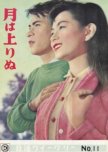
"Try what you can, then you'll find what you like"
The Moon Has Risen was a charming, sweetly funny film written by Ozu Yasujiro and directed by prolific actress Tanaka Kinuyo. A father living with his three daughters, all of marriage age, would have to brace himself as the matchmaking and romancing were about to escalate with the full moons.Asai Mokichi lives in Nara with his three daughters. He has a hands-off approach with their love lives, letting his daughters do as they will. Chizu is the eldest daughter and a widow. She is traditional and loves caring for the family and her father. Ayako, the second daughter, is quietly shy, and falls somewhere between modern and traditional. Much to her consternation, her aunt is always trying to set her up with marriages she has no interest in. Setsuko, the youngest at 21, is effusive and effervescent. She is close friends with Shoji, a man who is currently living on the premises and unemployed. Shoji’s friend, Amamiya, visits for a while during a business trip. Setsuko and Shoji join forces to matchmake for Ayako and Amamiya when they see how much the two care for each other. The course of true love never runs smoothly, and that goes for Setsuko and Shoji as well!
Many Ozu story elements were to be found. A widowed father, played by Ozu regular Ryu Chishu, had daughters of marriage age. This time though, no one was overly worried about the father being left alone. Chizu enjoyed caring for her father, but even she may have had a love match. No older male friends were called in to help find potential mates, the sisters took care of their own futures. And each other. I loved the sisters’ relationships with each other. I worried that I might find Setsuko annoying as she attempted to bring Ayako and Amamiya together, but after the first few scenes, I found her to be a fun character and appealing. Watching the relationship grow between Setsuko and the aimless Shoji was compelling as well.
This was Tanaka Kinuyo’s second directorial effort and I thoroughly enjoyed how she framed shots. It might have been an Ozu script but she didn’t stay cemented to shooting from the mat as he did. Nor were there the head on conversations directly to the camera and overly controlled acting. Her characters moved fluidly and gracefully. She used beautiful outdoor scenes, tranquil temple locations, and gorgeously composed rooms to great effect. The characters were more tactile and looser than in an Ozu film. The family even had a pet dog! The humor was gentle and felt authentic to the story. I found Tanaka’s style of directing very relaxing.
The Moon Has Risen was an endearing film about three sisters as they carved out futures for themselves and when they faltered there was always a sister around to give destiny a little push in the right direction. Tanaka Kinuyo tied everything together with her own method of directing and extracted excellent performances from the actors. Only the second Japanese woman at the time to direct a feature film, she proved herself well. Oh, and Mizoguchi Kenji, you were wrong, she had plenty of brains to direct.
16 June 2024
*Mizoguchi was against Tanaka directing, stating, she “does not have enough brains to be a film director.”
Was this review helpful to you?
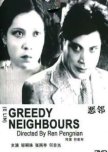
"Better to be broken jade than cheap tile intact"
This forty-one minute film fragment managed to fit in lots of Greedy Neighbors. This was one of director Ren Peng Nian’s early films which also starred his wife, Wu Li Zhu. Originally, the film was around 100 hundred minutes, but enough frames survived to get the gist of the story.Hua Ren inherited his considerable wealth which includes prosperous farmlands. His wife, Guo Fen, is the daughter of a famous fighter, which will come into play later in the movie. She and his sister Si Wen try to keep things running smoothly as Hua tends to spend money frivolously. The local warlord, Wild Dog, decides it’s time to bully his neighbor into giving him his farmlands. Another scoundrel, Smiling Tiger, also has his sights set on fleecing the wealthy fool. Smiling Tiger convinces Hua Ren to take his sister, Zhi Hua, as his second wife. Zhi Hua quickly mesmerizes Hua Ren and drives a wedge between him and his sensible first wife and sister. Having fallen into the clutches of Wild Dog and Smiling Tiger, the clueless Hua Ren is in for some challenging times.
Hua Ren was not a sympathetic character. I was far more invested in Guo Fen and Si Wen, who coincidentally, were excellent martial artists and protected their own. Perhaps in the longer version of this film they had more time allotted, they certainly deserved it. I’m not sure if Zhi Hua and Smiling Tiger were actually related or if she was a plant because they had a very, uh, tactile relationship.
Once Hua Ren was about to lose everything, his sister and male servant helped to turn things around and galvanize him into action. “Today’s world is run by might…Better to be a broken jade than cheap tile intact.” The events that followed in the last part of the film were confusing as Wild Dog had to be confronted twice with no explanation. Given the mood of the film, it did seem to have a proper ending which is always a concern with film fragments.
If you have an interest in silent films from this era, Greedy Neighbors did give a little insight into the political happenings of the time and the vulnerability of the people. Ren Peng Nian and Wu Li Zhu would go on to make numerous martial arts and wuxia films together, with Wu often cast as a heroine. I’d be interested in seeing some of those. This film was a struggle watching the pampered and easily manipulated Hua Ren letting the important people in his life suffer while he partied. He was lucky enough to have two strong women who had his back or at least tried to. More than he probably deserved.
14 June 2024
Was this review helpful to you?
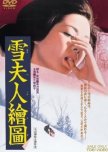
"Am I a coward?"
Portrait of Madame Yuki was a strange and twisted tale from Mizoguchi Kenji. Ostensibly about male domination, it felt more like a toxic relationship based on S & M.Yuki and her husband live apart most of the time, but have reunited over the death of the family patriarch. All that they have left is the estate she owns. Her husband has a mistress and is a wastrel with money. Yuki and her friend, Professor Kikunaka, decide to open her house as an inn in order for her to make money and become independent. The servants all believe she’s in love with the professor but their relationship always comes across as platonic, though his feelings may run deeper. Her husband isn’t afraid to bring his mistress home or even to force himself on Yuki. Regardless of how badly he humiliates her, Yuki can never tell him no. The professor tries to convince Yuki to divorce her husband, but the “demon” inside her won’t let him go even when he attempts to steal her home out from under her.
The version I watched of this film was difficult to follow at first as whoever/whatever did the translations completely messed up the English pronouns. Yuki was often referred to as him, her, or it. Plural pronouns were also used for singular people interspersed with singular ones in the wrong tense. It took a while to figure out if it was Yuki’s father or her husband’s father who died and whether it was the husband, Yuki, or himself the professor was talking about in a conversation. Other than that annoyance, the story itself was not a pleasant one. Despite the professor encouraging Yuki to be strong and stand up for herself and do the things that would make her life better, Yuki usually collapsed into a heap blubbering about how she was a coward, defeated, and not strong. Ultimately, no matter how badly her husband treated her, she could not resist whatever he did in the bedroom. Instead of embracing this part of herself or cutting ties with her husband, she chose to suffer. She always seemed to be slumped over, most likely because she was lacking a backbone.
This film was beautifully shot both indoors and outdoors. Mizoguchi certainly had an excellent eye for framing scenes. The acting was all very good, Kogure played Yuki as a pathetic creature ruled by her demons, Yanagi gave the husband a twisted sense of resentment toward his wife, and Hamada with her gum snapping duplicitous Ayako rounded out the reluctant ménage à trois. Based on the synopsis, I thought that Hamako would have a bigger role, but she was mostly relegated to the background after Yuki was introduced.
Portrait of Madame Yuki ended up being a depressing look at a woman who felt trapped by societal constraints and her own despised appetites. If you are looking for a tragic film with an open attitude toward sex (1950’s style) and are a fan of Mizoguchi’s work, this might be one to try.
*If suicide is a trigger for you, please do not watch this film. There is a lot of talk about suicide, a suicide attempt, and completion.*
13 June 2024
Was this review helpful to you?

"The more you know, the more you see." I've seen enough.
A Trip with Friends is the third film of Kim Chang Gyun’s that I’ve watched and sadly it was the weakest. All three of his short films were made in 2018 abroad. This movie as well as Snapshot were filmed in Thailand. Like Snapshot, the characters visited various historical sights and tourist attractions.Kim Hee Jung, Seo Mi Jung, and Lee So Jung are theater and film studies majors at university. They decided to take a trip abroad to Thailand together. They eat, shop, and visit the elephants and later talk about the elephants. Over the next few days they take boat tours and go to the beach and visit other sights. They talk ad nauseam about acting and their love lives. Two of the girls have dreams about their professor of Arts in Images class. On the plane ride home, the third girl has her own dream about the professor.
I would worry that this was more of a Kim Chang Gyun Ego Trip rather than A Trip with Friends except that his professor Hur Dong Chul came across as a deadbeat in two of the girls’ dreams. During the dream sequences it became obvious how low budget the film was as there were people in the background yelling and babies crying. Much of the film was watching the girls take selfies together as they explored their surroundings. When they weren’t taking pictures, they were talking in their room, or at least two of them talked, the poor third girl spent most of her time trying to look interested during the mundane conversations. The two girls who did most of the talking also did what I call “hair acting”. They could not keep their hands out of their hair. They were constantly tussling, tossing, and flipping it.
I thought there were elements of Chang's other two films that were of interest, but I found A Trip with Friends tedious at best. I enjoyed seeing some of the places they visited, I just grew tired of watching them taking pictures of themselves. The dreams ended up being a little creepy. And the long, long, monologues about their lives held little interest for me. I don’t mind a bargain basement budget for an independent film, however, I need something to keep my attention. I wished I had stayed home instead of taking A Trip with Friends.
5 June 2024
Was this review helpful to you?
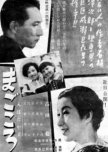
"When we feel bad, we cast a shadow over our children"
Sincerity was a film by Naruse Mikio adapted from a short story. The film had great potential but was marred by wartime censors. I would love to have seen what he would have done free from their interference. The film had lovely elements, two schoolgirls were friends despite coming from different economic classes. And their friendship wasn’t harmed by one girl being ranked higher than the other in their class, no competition or ugly jealousy. The young actresses were particularly engaging in their roles which helped enormously. I would have been happy if Naruse had created a slice of life with just their delightful story. But underneath the surface of their sunny friendship, lay a darker tale between the parents which threatened to upend their joyful existence and friendship.Tomiko and Nobuko both bring home report cards. Tomiko who lives with her mother, Tsuta, and grandmother is ranked first in her class. Her mother works as a seamstress to support them. Nobuko is reluctant to show her mom her report card as she has dropped to 10th in the class. Her father, Keikichi, isn’t concerned but her mom blames the new teacher. Keikichi says education is the mother’s job and maybe she is spending too much time away from the house. Late one night Nobuko’s mom brings up Tsuta and her past relationship with Kei. Nobuko overhears the conversation and shares it with Tomiko the next day. The girls’ reaction to the news and their parents’ reactions once they realize the secret is out leads to uncomfortable confrontations and conversations. And to add a bit more drama, Keikichi receives his draft notice.
Naruse managed to pack a lot of story into an hour though the ending was emotionally and narratively abrupt. The censors may have had a hand in that as everyone came together to send off the soldiers waving flags and cheering. Draft notices were met with happy congratulations. The film also began with the Greater Japan’s Patriotic Women’s Association meetings. I found it strange that Mrs. Asada, she was never given a name like everyone else, was scolded by her husband for spending too much time with these patriotic groups. In fact, he gave her a dressing down at one point that was particularly harsh, one of the harshest comments to a wife I’ve seen in a movie. Future soldier Keikichi was immune from criticism regardless of what he did.
The stars of the show were the child actresses, Kato Teruko and Etchan. They brought a wealth of emotions to their characters. Regardless of what was going on with the adults, Tomiko and Nobuko, showed great care for one and other. They were unable to be as close as they would have liked because they weren’t allowed to visit each other’s houses. Ostensibly this was because of their different economic classes, but the hidden feelings of the parents’ may have also had something to do with it. The parents wore their masks until the truth came out and then slipped them back on again, teaching the girls how to mask their feelings and pain as well.
There was a wonderful movie hidden inside Sincerity that was unable to fully blossom. Like a too early frost, it was nipped in the bud just as the depths of the secrets and story were about to be fully revealed and dealt with. If you are a Naruse fan, this is definitely one to try in order to watch as the young friendship was shaken by the adults’ deeply buried emotions and how the children fought to keep their friendship. All while the specter of war lingered in the background. I just wish the resolution had been fully explored instead of chopped off suddenly.
25 May 2024
Was this review helpful to you?
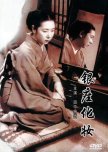
Be careful of men who tell you what you want to hear
Ginza Cosmetics was a bittersweet slice of life about a middle-aged single mother who worked as a bar hostess. Tanaka Kinuyo imbued the working mom with a quiet resilience as she faced whatever challenges and opportunities came her way.Yukiko looks at the world through clear eyes. She works hard to maintain her dignity and reputation while also acknowledging that being a hostess can’t last forever. Yukiko works with women her age and ones much younger. She takes Kyoko under her wing and steers her away from the post-work behavior of some of the other hostesses. Her son, Haruo, is a free-range child, though Yukiko’s landlords and neighbors keep an eye on the boy. Problems arise at the bar-a customer doesn’t pay which comes out of the hostess’ pocket and the bar itself is in financial trouble. Yukiko makes an effort to resolve the problems though she doesn’t always meet with success. She’s offered the chance to have a patron and through an act of fate also meets an available man. For the first time in a long time, she’s able to have an intelligent conversation and feels the pull of possible affection. Perhaps even a way out of the life she’s living.
Yukiko was an interesting character. She was well educated and well mannered. No mention was made of how she ended up in the bar. While others said she should find employment elsewhere, the employment reality for women may have precluded such an opportunity, especially during and right after the war. In contrast to the younger women who wore western dresses and heels at the bar, Yukiko dressed in a traditional kimono. She bore no shame for Haruo who was born out of wedlock, instead knowing it was the man who abandoned her when she became pregnant who had earned that shame. No matter what others did, she refused to supplement her income in after hours trysts with customers. The clock of time was ticking louder and she heard it, knowing she wouldn’t be able to remain a hostess forever. For the moment, she focused on earning a living in order to raise her son. When negative situations occurred, she kept her head and worked around them. No histrionics, no blame game, she just dug down a little deeper and held on. Though she believed most men were animals, she still never became so jaded that she wouldn’t reach out to help those in need.
Ginza Cosmetics had a similar theme as Naruse Mikio’s When a Woman Ascends the Stairs (1960). The latter was a deeper exploration of an aging hostess while the former was lighter look at the same subject. Ginza Cosmetics dealt with a woman who could have been more than a hostess listening to men as they drank, but the war and a patriarchal society left her with few options and she did what she had to do to survive and provide for her son. Her future was unknown but Tanaka’s Yukiko left no doubt she was more than prepared to face it with grace and dignity.
17 May 2024
Was this review helpful to you?
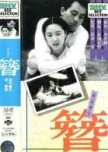
"The sun will show me the way"
While the world was falling into mortal turmoil and the stage was being set for a devastating war, Ornamental Hairpin found a group of people at a quiet inn nestled in the mountains where they could experience healing, friendship, and some moments of respite.Professor Katatae has come to the inn and hot springs for the summer to read. His ruminations are often ruined by traveling parties visiting the inn, making noise and hogging the masseurs. Emi and her friend Okiku are two such pilgrims enjoying themselves. The Hiroyasus have befriended both the professor and a Go playing grandfather staying there with his two grandsons. A young soldier, Nanmura, accidentally steps on a hairpin in the hot springs, extending his stay at the inn. While Katatae continues to grouse about the injury, Nanmura sees it as poetic. Now everyone is concerned whether the hairpin belongs to a young beautiful woman so as not to burst Nanmura’s poetic bubble, misunderstanding his meaning. Turns out the hairpin belongs to Emi and she returns to collect it and apologize. The group takes her in and she decides to stay there with them for the summer, much to the chagrin of a man she left behind in Tokyo.
Ornamental Hairpin was a simple, tranquil story, but not simplistic. Emi may have been the focal point of the story, but this was an ensemble cast of disparate characters who fell into an easy friendship while on vacation. They ate together, soaked in the springs, complained about the food, and even slept uneasily together with the snoring Professor and Grandpa keeping people up at nights. The grandsons Jiro and Taro whined about the sameness of the days but also took time to help Nanmura recuperate and exercise along with Emi. It is in Emi where the story transcended an uneventful vacation romp. She learned to do laundry and enjoyed spending time with the boys. Here where the sun could touch her face she began to long for something more in her life. She was looking to find meaning. While she was drawn to Nanmura and he to her, his life was back in the military and the coming war. When everyone else was preparing to leave, she remained behind, unsure of where she wanted to be and more importantly, who she wanted to be.
The acting was quite compelling. Saito Tatsuo as the Professor, brought the comic relief with his constant state of complaining. Especially when he railed against the noise then kept everyone up at night with his snoring. But it was Tanaka Kinuyo and Ryu Chishu who gave the heartfelt performances. Tanaka and Ryu were forces to be reckoned with in Japanese cinema. Ryu was an Ozu regular, but often as the father, older brother, or patrician friend. Tanaka excelled at playing women in more desperate circumstances. Here they were youthful and the romantic leads, even if the romance was not fully developed. They supported each other, gently and playfully, one time literally when she gave him a piggyback ride! They were soft and almost unrecognizable in these strangely easy-going roles. Tanaka conveyed the longing of her character for the sun on her face and freedom in her life beautifully.
Ornamental Hairpin was the ideal summer vacation for a group of people who became friends over dinner and soaking in the healing waters. Idyllic scenes of bubbling rivers, mountains, and trees gave way to reality calling again. A hint of melancholy also floated through the mists with the already present food shortages and war looming on the horizon. Emi, walking alone on the paths they’d traveled together had to discern the path ahead for herself. This film captured a cozy, funny, bittersweet moment in time for a group of strangers who became friends and faced uncertain futures.
12 May 2024
Was this review helpful to you?

"The soil of Burma is red. So are the rocks."
The Burmese Harp was a WWII film based on a children’s book by Takeyama Michio from 1946. The book was written to help young readers come to terms with Japan’s defeat while demonstrating Buddhism’s emphasis on altruism. Music featured prominently with both the Japanese and British soldiers singing as well as the playing of the titular instrument. This was the kindest, gentlest war film I’ve ever seen as the Japanese soldiers came to grips with their country’s loss and hoping to see home again.A small group of Japanese soldiers are making their way through Burma (Myanmar) to Thailand when they are captured by the British. They learn the war has been over for three days. Capt. Inouye is unsure of what lies ahead of them but says they will face it like men and they will face it together. The Allies ask for a soldier to try and talk a group of holdouts on Triangle Mountain into surrendering. Inouye sends the harp playing Mizushima Yasuhiko and tells him to catch up with them at the Mudon POW camp 200 miles/322 km from where he will be after the mission. Unlike Inouye and his group of singing soldiers, the fanatical soldiers on the mountain don’t care that the war is over. They want to die for their Emperor and call Mizushima a coward. The Brits hit the hideout hard and Mizushima is the only one to survive. A traveling monk rescues him and nurses him back to health. While the monk is bathing in the river, Mizushima steals his clothes and later shaves his head so that he can make the arduous trip back to his men. Along the way he repeatedly comes across the decaying bodies of Japanese soldiers left where they lay. He buries a handful before continuing his journey. When he reaches the Buddhist monastery at Mudon he teaches a young boy a few new chords on the harp (Saung). The next morning he hears singing and finds the Allied hospital staff at the camp singing and praying over a Japanese soldier they have buried. Something inside of him fundamentally alters at this sight and instead of joining his men he turns back to bury the dead. Meanwhile, his men grow ever more concerned at his absence.
This film fell more into fable or fairytale than realistic war drama. Director Ichikawa showed the ravages of war and starvation in his excellent film Fires on the Plain (1959). While the book supposedly touched on Japan’s responsibility for the war and was critical of Japan’s militaristic actions and mindset, this movie veered away from those criticisms. Since the core concept of the film was for children--comfort women, the Nanjing Massacre, and dire reality for Allied prisoners in Japanese POW camps where 40% died was left out. This was a film about healing, friendship, and spiritual transformation in the face of defeat while not shying away from the staggering loss of life from war.
Music played an almost magical role for the soldiers in healing and binding the men together. It also brought out the shared humanity between the Japanese and Allied personnel. “Home, Sweet, Home” was sung by both groups and at one time all together. As Mizushima observed the scattered bodies with birds feeding on them, “O, Sacred Head Now Wounded” played in the background. In typical 1950’s fashion, the men sounded like a professional chamber choir when they sang and Mizushima’s battered saung provided the clear, dulcet tones of an orchestra’s multi-octave harp.
The soldiers longed for home and longed for peace. As they dreamed of returning to their lives in Japan they had no idea of the drastic changes ahead or that many places would be unrecognizable. Mizushima had been reborn while assisting the dead to rest in peace. He had to decide whether to stay in Burma and mend the past or go home and help rebuild his country. While this film may have shown a more idyllic version of humanity it couldn’t hide the horror and monstrous cost of war and didn’t try. This type of meditative, comforting film in the face of upheaval and how humans choose to react and grow was right up my alley. I thoroughly enjoyed The Burmese Harp. “…our work is simply to ease the great suffering of the world…to find the strength to create peace by one’s own example.”
2 May 2024
Home, Sweet, Home (For those too young to be familiar with it)
“Mid pleasures and palaces though we may roam
Be it ever so humble, there's no place like home
A charm from the skies seems to hallow us there
Which seek thro' the world, is ne'er met elsewhere
Home! Home!
Sweet, sweet home!
There's no place like home
There's no place like home!
An exile from home splendor dazzles in vain
Oh give me my lowly thatched cottage again
The birds singing gaily that came at my call
And gave me the peace of mind dearer than all
Home, home, sweet, sweet home
There's no place like home, there's no place like home!”
Was this review helpful to you?

"Whatever happens, we'll come back for you"
Onoda: 10,000 Nights in the Jungle told the true story of one of the last Japanese holdouts after WWII. Japan surrendered on September 2, 1945. The war ended for Onoda Hiroo 29 years later on March 9, 1974. During his training as an intelligence officer he was told he had to survive at all costs and that "Whatever happens, we'll come back for you.” Onoda learned the hard way that the military was not as loyal to him as he was to the mission.“We will be back for you. We will be back. Whatever happens---survive!”
Late in WWII, Onoda Hiroo fails pilot school because he has a fear of heights and dying. He’s recruited to train as an intelligence officer and in guerilla warfare in December 1944. Before he leaves, his father (mother IRL) gives him a dagger to kill himself with rather than be captured should the need arise. When he arrives on Lubang Island none of the other officers will help him with his mission which was to disable the airstrip and port. Most of the soldiers are hungry, demoralized, and/or ill. The Americans take the island shortly after his arrival. Soon the only Japanese soldiers not dead or captured are Onoda and the three men he chose to work with him---Kozuka, Shimada, and Akatsu. Believing they must hold their ground until more Japanese forces arrive, they set up camp in the jungle and cause damage to the farmers’ fields in order to keep the locals afraid of them. They subsist on whatever they can find or steal, taking up residence in caves or homemade huts. The small group of holdouts refuse to believe the war is over and patiently wait for reinforcements.
“Try to change the way you see things”
Two different actors played Onoda and his second in command, Kozuka. They all performed admirably as the characters aged and learned to survive in the jungle and rely on each other. The film confined most of the shots to the men and their duties which displayed their arduous methods of staying alive. Bound by their limited outside contact, their lives seemed incredibly sad. They were completely isolated and separated from family and loved ones. As much as the film focused on the holdouts it would have been nice to gain the locals’ perspective of the killers in the hills and the fear they instilled for a time.
“They know that what is complicated and even incomprehensible, sounds true!”
My first thought when Onoda’s father handed him the dagger and told him, “Your body is the Fatherland. Do not let it fall into enemy hands,” was the Spartan mothers’ declaration to their sons, “With your shield or on it.” Ordered not to die and trained to unconditionally obey orders, unwilling to return home defeated, and determined to prove himself, Onoda’s psyche was trapped in a nightmare in the jungle of Lubang. The outside world and even loved ones attempted to convince Onoda that the war was over, but he could only see conspiracy theories everywhere he looked, convinced that Japan was still fighting. Eventually, he had access to newspapers, magazines, and a transistor radio but believed it was all an elaborate ruse to trick them. At some point, Onoda’s rigid obedience and views appeared to come across as an over-inflated sense of self. Why would the enemy go to such extraordinary lengths to trick one man? If he was that important they could have sent in a wave of soldiers to kill him or just bombed the jungle. Onoda had a high level of cognitive dissonance as he clung to his beliefs in the face of harsh opposing facts.
“What if we killed people we’re no longer at war with?”
Onoda and his men were resourceful and resilient. The youngest left after nearly 5 years and another was killed after almost nine. When the second in command was killed after 27 years of holding out, it seemed to chip away at Onoda’s confidence. Despite their incorrect assessments, Onoda and his men were a product of their training and propaganda. They truly believed they were serving the greater good by holding their position on the island. It took as much determination as denial to be separated from family and friends, to live on roots and fruit often with only rudimentary shelter for nearly three decades. In 1974 a Japanese adventurer discovered Onoda and befriended him. The young man caused Onoda an existential crisis as the holdout could no longer deny that Japan and the world had changed. The military bore responsibility as well. The loyal soldiers killed 30 inhabitants over the years. Two of the four died pointlessly and Onoda lost 30 years of his life because no one cleaned up the mess they created. These soldiers were imbedded on islands in the last months of the war when the writing was on the wall. VE Day occurred not long after Onoda was stationed on Lubang and Japan surrendered in August of 1945. All it took was for Onoda’s superior to come back for him. Unfortunately, for Onoda, his men and the people of Lubang, it took nearly 30 years to do so.
30 April 2024
Was this review helpful to you?

 35
35 110
110 7
7





















